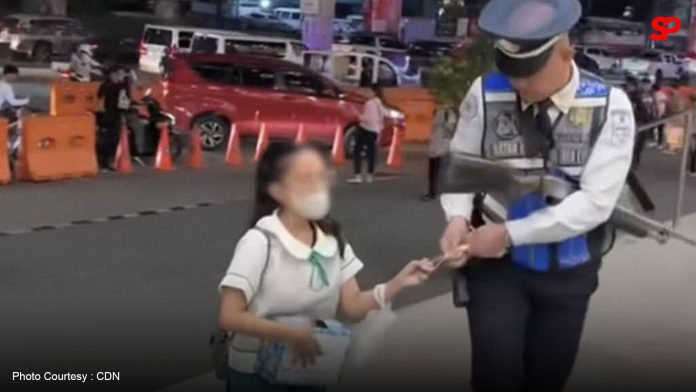By Raymond Dimayuga
In recent days, social media has been abuzz with outrage and heartbreak over a video showing a security guard scattering the wares of a young sampaguita vendor. What should have been a mundane interaction— perhaps one of gentle enforcement or guidance— devolved into a scene that exposed the deep fault lines in how power and poverty intersect in our society.
The incident has since led to the guard being dismissed from his position, with the Philippine National Police stepping in to investigate. While this may seem like a resolution, it’s worth examining the larger questions this situation raises: How do we treat the most vulnerable in our society? What systems allow for such behavior to persist? And, more importantly, how can we prevent it from happening again?
A Snapshot of Inequality
The image of a young sampaguita vendor and a uniformed guard is a stark reminder of the inequality that defines much of Philippine society. On one hand, you have a vendor, likely pushed to the streets by systemic poverty, selling flowers to help her family make ends meet. Or is she part of a syndicate as some netizens wonder?
On the other, a guard, possibly overworked and underpaid, tasked with enforcing rules in a rigid, unforgiving environment.
This isn’t just a story about two individuals; it’s about the structures that put them on a collision course. The vendor is there because of a lack of robust social safety nets, and the guard, wielding what little authority his job affords him, acted in a way that reflects not just personal failing but societal shortcomings.
The Abuse of Power
Security guards are often seen as enforcers of order, tasked with keeping spaces safe and secure. But with that authority comes the responsibility to act with fairness and empathy. In this case, did the guard cross a line, using his position not to mediate or protect but to humiliate and harm someone far more vulnerable than himself?
If that’s the case, such abuse of power is not uncommon, particularly when dealing with individuals who are perceived as powerless. It’s easy to dismiss a street vendor as a nuisance, to see her not as a person with dreams and struggles but as a problem to be removed. This dehumanization is at the heart of many societal conflicts, and until we address it, similar incidents will continue to happen.
A Call for Systemic Change
While the dismissal of the guard is a step toward accountability, it does little to address the root causes of the issue. How do we protect vulnerable groups, like street vendors, from harassment? As well, the security guard, now without a job.
First, institutions employing security personnel must invest in proper training programs that emphasize de-escalation, communication, and human rights. Guards should be equipped not just with the tools to enforce rules but also with the skills to navigate complex social situations.
Second, we need policies that provide tangible support for street vendors and their families. They are not on the streets by choice; they are there because of poverty, limited opportunities, and lack of access to a meaningful education. Programs that provide scholarships, financial assistance, and sustainable livelihoods for their families could keep them off the streets and in school, where they belong.
Finally, this is a moment for all of us to reflect. How often do we dismiss or overlook the struggles of the poor? How often do we reduce individuals to their circumstances, forgetting their humanity?
Compassion as a National Value
It’s easy to blame the security guard and judge people and that video at face value, but what if there’s more to the story?
At its core, this incident challenges us to reconsider what kind of society we want to build. One where authority is wielded carelessly, or one where it is tempered with compassion? One where women and children are forced to work on the streets, or one where every person has the opportunity to dream beyond survival?
The video of the sampaguita vendor and the guard should not just be a source of outrage; it should be a call to action. Let us hold those in power accountable, push for systemic reforms, and, most importantly, practice empathy in our daily lives. Only then can we turn moments of pain into opportunities for progress.
Eat the Worm is a weekly column that dives headfirst into unconventional ideas, uncomfortable truths, and the gritty realities we often shy away from. Much like the brave tradition of “eating the worm” in a tequila bottle, this column challenges readers to confront the hard stuff with courage and curiosity. This is a fearless exploration of life’s rawest and most compelling topics.

